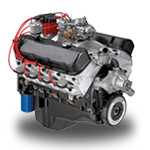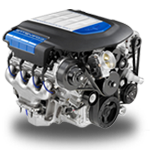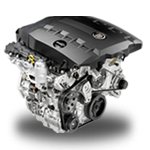Get Your Engine Below
Get the best prices online from our large selection of Used, Rebuilt, Engines and Transmissions.
Free Special Report
Speak to one of our LIVE engine experts! Talk to one of our qualified staff members with over 50 years experience in the automotive industry. They'll be happy to help you search our used engines today!
Download the PDF Version of the Free Special ReportThe Choosy Engine Buyer: Don't Get Fooled by High Costs or Lemons
Buying a replacement engine for a vehicle can be a complicated exercise. Dodgy deals can include overcharging, worn-out pass-offs, or the wrong kind of engine for your ride. The complexity of an engine means that buying can be a lengthy process, and the large number of models in circulation adds to the number of unknowns in the equation. Knowing about how Engines are classified and how to spot problems can save you headaches.
Here are some tips to think about when shopping for the engine that will make your car run again. Paying attention to these can help you avoid getting an inferior product or getting snookered some other way.
#1 - Make sure your engine has been tested.
Whether it's the dealership, a manufacturer, or a re-shop enterprise, technicians should have signed off on your engine, testing it for how it hold oil, pressure-testing, and other valuable diagnostics. Different manufacturers have different testing standards; find out about the certification of the staff who will be signing off on your engine to see just what standard they use to judge how well the block will work in action.
#2 - Hash out a warranty.
A short-term warranty is the perfect safeguard for a used engine. Even in it just covers a few weeks or months, a warranty purchase can ensure that your new engine won't conk out as soon as it goes into your vehicle. Without it, you could end up going through all of the expense of installation just to be stranded again after a few quick trips. Study your warranty and ask questions; the document is only as good as it is written and your understanding of it is critical if you ever need to use it. The bottom line is this: although you have to look your warranty over for "imperfections", when something goes wrong, an imperfect one is better than none at all.
#3 - Get your engine shipped to a place where mechanics can work on it.
This one is kind of intuitive: having your engine shipped to your residence or some other useless place will cost you dollars. Shipping directly to a garage will save on shipping costs across the board and cut down on inefficient transport. You'll need to make sure the shop you're shipping to has hoists and other equipment for working on your car and engine.
#4 - Get the right block for your needs.
Figure out which of your old parts can or will be used along with the replacement engine. There are many different ways to work a replacement engine into a vehicle. Will your replacements include its own manifolds? Its own belts, compressors, etc.? Is your new engine block a "short block" that fits into your old parts? Getting these questions answered is a huge part of securing compatibility with your replacement engine. Mechanics can tell you which parts should come standard or which parts will make it easier to install your engine.
#5 - Spot-check your costs.
Just like any other big buy, with used engine sales, there can be hidden costs. It's not likely you'll be paying "hospitalities taxes" or other weird charges on your purchase, but on the other hand, charges like shipping are things you should watch out for. Shipping charges can sometimes reach obscene levels: look at any itemization of your bill, including shipping, and ask questions BEFORE your engine goes on the road (as a package).
A "core charge" is another one you want to watch out for: this kind of additional charge is for making sure the engine block is intact and in good condition. Look out for these itemized charges; a little extra attention goes a long way. Make sure you know that the dollar amount on the bottom line IS the bottom line.
#6 - Check your timeline.
Make sure you are clear on how the transaction will be processed (check, credit card, money order, etc.), when the engine will be shipped out, and about when it will arrive at its destination. "Long wait" deals are another kind of rip-off: time is money, and your purchase should be guaranteed to arrive in a timely manner. Get these details sorted out before your money leaves your pocket, and once your plan is in place, don't settle for a "no"; demand a tracking number and any other information you need to make sure your engine is on its way. Just like with any consumer purchase, you are your own advocate, and staying on top of your engine's transport is necessary if you want the work done in a timely manner.
Finding a good seller is another way to make a good buy - Please visit www.GotEngines.com and work with people who care!






Connect With Us